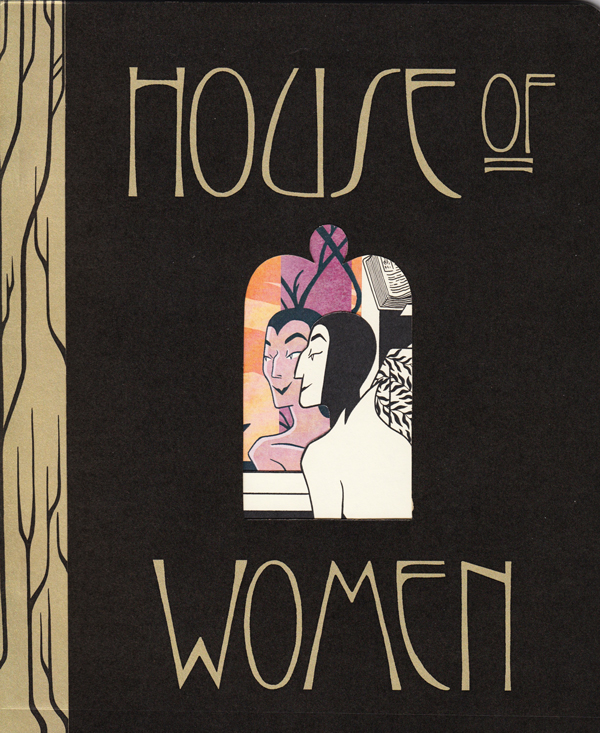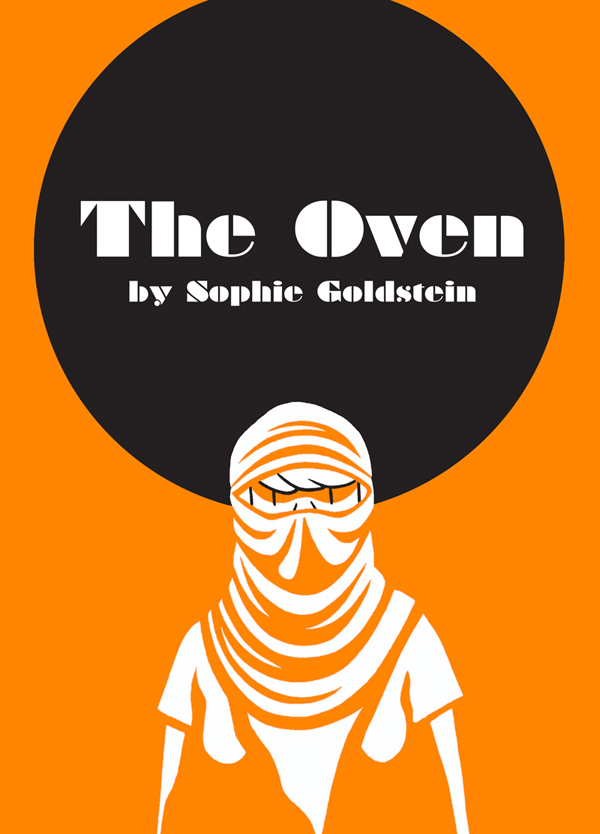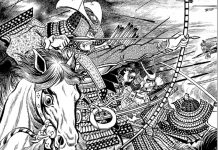House of Women and The Oven by Sophie Goldstein
I haven’t encountered much chatter about Sophie Goldstein’s extraordinary, smart, beautiful three-part comic House of Women, but I’m hoping that changes. Goldstein’s use of science fiction as a springboard to examine numerous ideas, particularly gender-related issues and colonialism, is exquisite, with an understanding that the fantastical elements aren’t just window dressing to gussy up a story, but elements that strengthen metaphors and further develop themes by giving them physical presence in the story.
Goldstein’s story concerns the arrival of a nun-like group of women on a largely untamed planet in order to interact with the indigenous population that lives within the jungle-like landscape in service of furthering the reach of the Empire, which is the authoritative body they represent.
The only other settler on the planet is Jael Dean, who works for a company reaping the rewards of the planet’s natural resources, and whose magnetism to some in the order of women has much to do with the feeling that he has done something forbidden — gone native.
As the women attempt to bring the indigenous inhabitants into their fold, the call of wild nature begins to take hold in some of their hearts, causing some behind-the-scenes tension. And their understanding of the locals embraces the concept of benevolent betters, treating them like children rather than respecting them as sentient, who beings, which not only ends up messing with their concepts of gender, but also threatens their mission.
Goldstein renders her cautionary tale with stark black and whites that incorporate hypnotic patterns that fly into dream like psychedelia, inventively capturing the emotional component of being in an entirely alien situation, and the confusion of the women’s own thinking as they try to deal with the situation that their zeal for the Empire has thrown them into. Goldstein’s conclusion hints that it might be wishful thinking for programmed zealots to be jolted out of their missionary zeal even through shocking trauma, and that which is awakened in the soul can just as easily be tempered through officious self-control, and that’s a danger for all of us who might be afraid of our own awakenings.
The Oven is a short science fiction story from last year that is quiet in its presentation, but large in its scope, touching upon subjects that have relevance right now. Syd and her partner Eric leave mainstream society in order to start a family, the implication being that there are rules about who can reproduce and Eric doesn’t qualify. They make their way to a desert settlement, The Oven, where Maggie and her husband live self-sufficiently and run a refuge for people like Syd and Eric who need to leave the grid in order to have children.
But this journey of parenting comes with other stances that cause friction between the couple, an embrace of true self-sufficiency that requires skills like sewing and working the earth to survive, and promotes knowing oneself better thanks to the time spent inside one’s own mind, thanks to the absence of screens.
It turns out, knowing who you are and what you want isn’t always something that aligns you with other people, and the noise of our data-driven society may be a distraction that prevents those rifts. Goldstein covers her story with multiple shades of orange that stand in for the burden of heat and hint at the strength required to survive the Oven, with a good-natured storytelling ability that uses its characters’ interactions to completely make you forget you are reading a story at all and rather watching something real unfold.










Oh my god. If this book is a pretentious as the review I have no interest in it.
Interesting how so called progressives think indigionous people should be left to live in mud huts without the benefits of modern technology
Your loss! Goldstein’s work is extremely accessible and excellent.
Comments are closed.